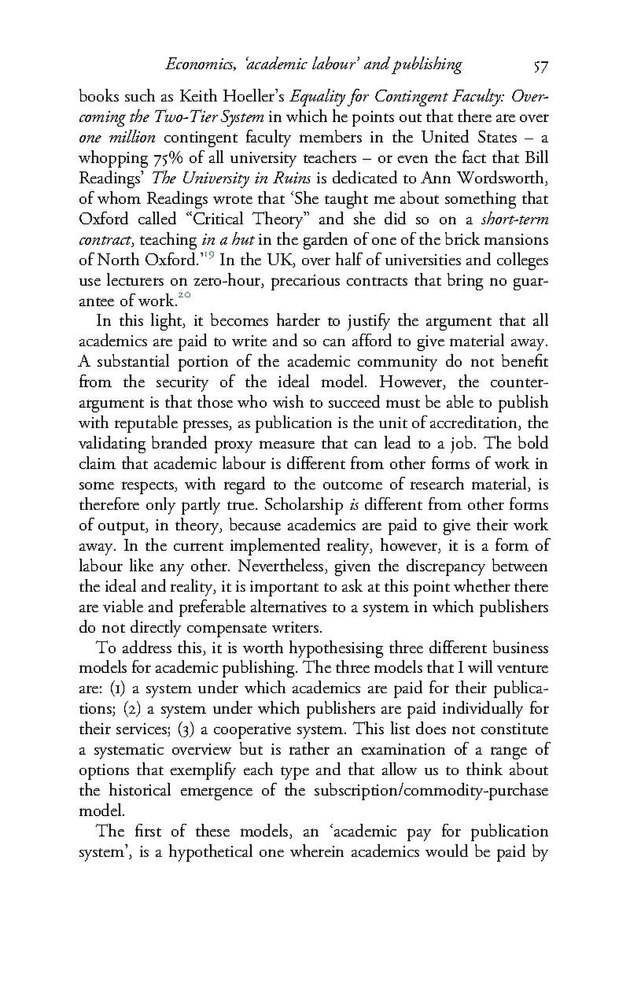books such as Keith Hoeller’s Equality for Contingent Faculty: Overcoming the Two-Tier System in which he points out that there are over one million contingent faculty members in the United States – a whopping 75% of all university teachers – or even the fact that Bill Readings’ The University in Ruins is dedicated to Ann Wordsworth, of whom Readings wrote that ‘She taught me about something that Oxford called “Critical Theory” and she did so on a short-term contract, teaching in a hut in the garden of one of the brick mansions of North Oxford.’19 In the UK, over half of universities and colleges use lecturers on zero-hour, precarious contracts that bring no guarantee of work.20
In this light, it becomes harder to justify the argument that all academics are paid to write and so can afford to give material away. A substantial portion of the academic community do not benefit from the security of the ideal model. However, the counterargument is that those who wish to succeed must be able to publish with reputable presses, as publication is the unit of accreditation, the validating branded proxy measure that can lead to a job. The bold claim that academic labour is different from other forms of work in some respects, with regard to the outcome of research material, is therefore only partly true. Scholarship is different from other forms of output, in theory, because academics are paid to give their work away. In the current implemented reality, however, it is a form of labour like any other. Nevertheless, given the discrepancy between the ideal and reality, it is important to ask at this point whether there are viable and preferable alternatives to a system in which publishers do not directly compensate writers.
To address this, it is worth hypothesising three different business models for academic publishing. The three models that I will venture are: (1) a system under which academics are paid for their publications; (2) a system under which publishers are paid individually for their services; (3) a cooperative system. This list does not constitute a systematic overview but is rather an examination of a range of options that exemplify each type and that allow us to think about the historical emergence of the subscription/commodity-purchase model.
The first of these models, an ‘academic pay for publication system’, is a hypothetical one wherein academics would be paid by
